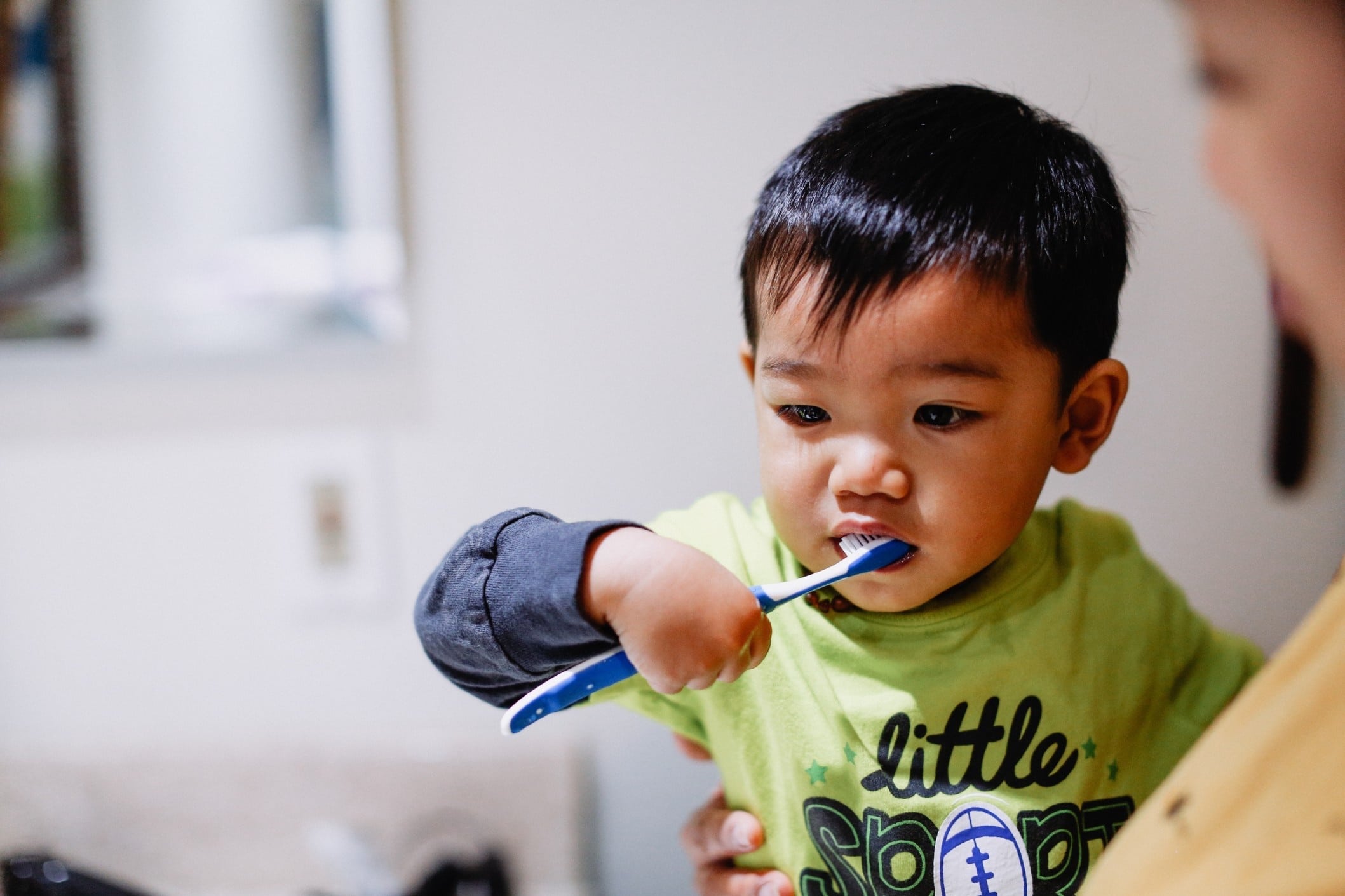Yes, your toddler needs to brush their teeth—here’s how to teach them
Try these toddler-tested toothbrushing tips, straight from a dad and dentist.

It’s close to 7 pm. Dinner’s off the table, the dishes are in the dishwasher and you’re finally winding down from the day. Knowing your little one still needs to brush their teeth feels daunting, and the temptation to “worry about brushing tomorrow” is just as overwhelming.
When encouraging toddlers to brush their teeth makes you feel like gritting yours, rest assured, they’ll get the hang of it with some gentle encouragement, some practice and a healthy dose of routine.
These toddler-tested toothbrushing tips work on my kids—just as well as they worked for me.
1. Start them young
When it comes to developing healthy oral care habits in children, the key is to start as soon as possible. The American Academy of Pediatric Dentistry encourages the use of a soft infant toothbrush starting at birth. You can begin your children’s dental routine as infants by cleaning their mouths and gums regularly with a soft infant toothbrush or cloth and water. The eruption of baby teeth signals an appropriate time to add just a smear of fluoride toothpaste to your child’s daily brushing habits.
2. Make it a routine
We crave familiarity and our children are no different. The more we perform an activity, the more we adjust to it. Skipping a morning or night of brushing sends the signal that it’s not always necessary, so create a pattern and try to stick with it.
Wylder, my son, loves milk before bed. But because of the routine we set, every night he knows after his milk, he brushes his teeth, puts on his PJs and it’s time for bed.
3. Let them have choices
Enable your little ones to be involved in as many decisions as possible. Choosing a toothbrush with their favorite color or superhero can excite them about using it. Even letting your tot pick a toothpaste flavor can be an easy win for you. While my daughter loves anything strawberry flavored, my son prefers a mixture of blueberry with mint.
4. Show them how it’s done
Make sure you get involved too. Turning brushing time into a nightly family activity allows your child to feel included in “grown up” activities. Lead by example. Sure, 7 pm on a weeknight may be a bit earlier than you planned on brushing, but if it brings them to the sink, what’s the harm?
5. Let them be independent—with help
Until your child can tie their own shoes, they probably don’t have the manual dexterity to brush completely on their own. But you can let your toddler brush their teeth for around 30 seconds to start, and then take over the toothbrush to help them finish. That way every tooth gets the thorough cleaning it needs.
6. Sing a song
Studies show that kids crave the sense of security that comes from a routine and also love learning through music. It’s a win-win combination in teaching your child helpful habits through song and routine. In our house, we start our bedtime schedule by turning on the “toothbrushing light.” The kids enjoy the routine, and we sing “brush, brush, brush your teeth” to the tune of “Row Your Boat” when we brush together.
7. Reward good habits (and avoid focusing on the bad)
If positive reinforcement wasn’t so successful, we parents wouldn’t see it recommended in so many situations. A sticker chart works great for smaller children, and a special reward after brushing can encourage children as they get older. For example, if your child has a favorite story, let them know you’ll be reading it after they brush their teeth. Think about your child’s interests and consider how they may be incorporated into tooth time.
8. Floss only when needed
There are certain activities you won’t have to worry about until later in your child’s life. Because of the primary spaces between many toddlers’ teeth, flossing isn’t necessary at that age. The AAPD recommends looking for teeth that touch without spaces before assisting your child in flossing.
9. Don’t point out monsters under the bed
Scare tactics, like saying their teeth will fall out if they don’t brush, or frightening young children with scary allusions to cavities and a trip to the dentist, will have a negative effect on their long-term oral health. Instead of motivating by fear, let kids know all the great benefits they’ll get from brushing their teeth, like strong teeth, bright gums and a beautiful smile.
Helping your toddlers adjust to brushing their teeth can be an exciting time to bond while teaching the importance of taking care of their bodies. The habits you instill here—consistency, autonomy and self-care—will certainly aid your little ones later in life when they aren’t so little anymore.
Happy brushing!


